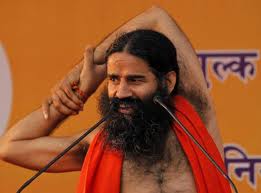New Delhi, Jul 16: India's pharmaceutical industry will be able to produce Covid-19 vaccines not just for the country but also for the entire world, according to Microsoft co-founder and philanthropist Bill Gates.
A lot of "very important things have been done" in India and its pharma industry is doing work "to help make the coronavirus vaccine building on other great capacities that they have used for other diseases", said the Co-Chair and Trustee of Bill and Melinda Gates Foundation.
Speaking in a documentary -- Covid-19: India's War Against The Virus -- to be premiered on Discovery Plus this (Thursday) evening, Gates said India also faces a huge challenge due to the health crisis because of its gigantic size and urban centres with a lot of population density.
Commenting on the strength of India's pharma industry, he said, "India has a lot of capacity there -- with the drug and vaccine companies that are huge suppliers to the entire world. You know, more vaccines are made in India than anywhere-- starting with Serum Institute, that's the largest."
He further said, "But (there are) also Bio E, Bharat (Biotech), many others. They are doing work to help make the coronavirus vaccine, building on other great capacities that they have used for other diseases."
Stating that India joined Coalition for Epidemic Preparedness Innovations (CEPI), which is a group working on a global basis to build vaccines platforms, Gates said, "I am excited that the pharmaceutical industry there will be able to produce not just for India but also for the entire world. (This is) What we need to reduce the deaths and make sure we are immune, which is how we end the epidemic."
Gates said Bill and Melinda Gates Foundation is also a "partner with the government, particularly with the department of biotechnology, the Indian Council of Medical Research (ICMR) and the office of the principal scientific advisor provide advice and help about getting these tools going".
Commenting on the deadly virus breaching India's borders in the documentary which was shot extensively during the period of lockdown, he said, "India is still at the beginning of this, but there's a lot of very important things have been done.
“It's a huge challenge with India because you've got a gigantic country. You've got your urban centers with a lot of density-- and so that-- drives the spread. You have people moving around."
He, however, added: "Yet people are stepping up... Looking at how we reduce the spread while trying not to reduce food availability, equipment that people need."
Highlighting Gates foundation's role, he said it has "worked for the Indian government on health issues like introducing new vaccines over the last decade; and so when Covid-19 came along, we stepped in and said you know where are the gaps, we have been funding work on detection and isolation.
“We have been particularly active in UP and Bihar where we have done health delivery in the past."
The foundation is also working with the department of personnel and training to take their online training platforms and "are now using that guidance to help their frontline health workers", Gates said.






Comments
Add new comment